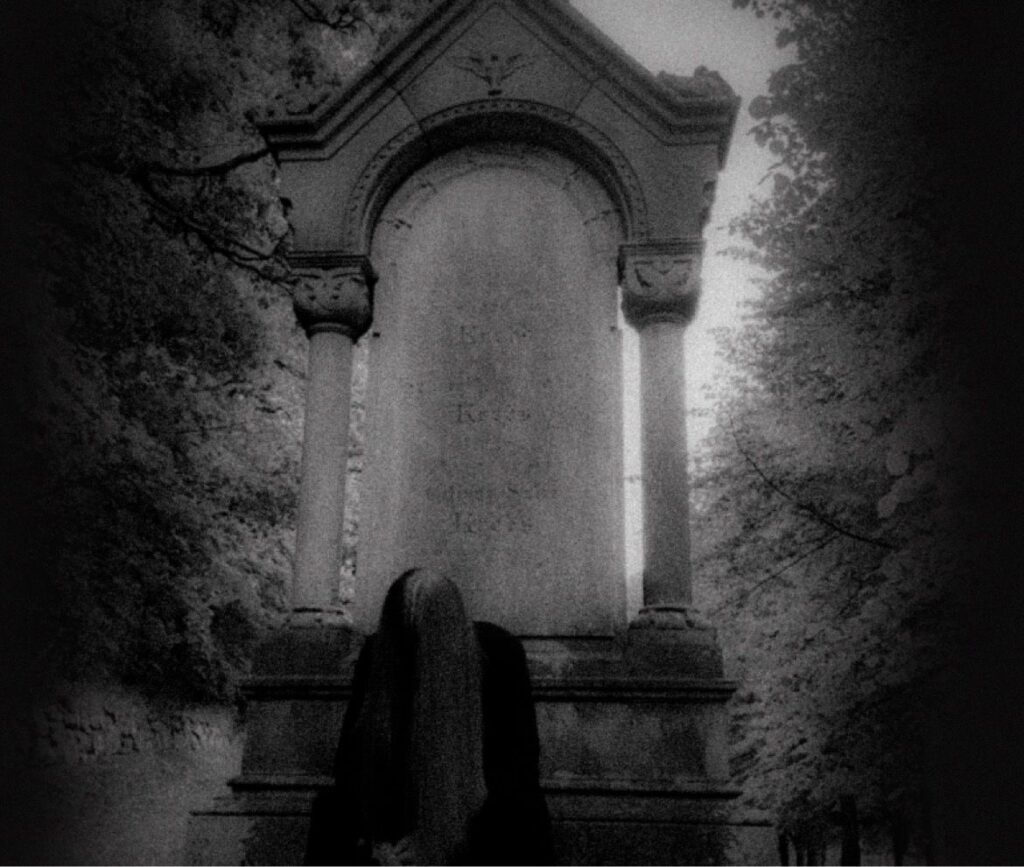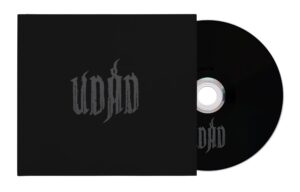
While Mork may be riding high in the black metal firmament, Thomas Eriksen remains driven to seek out new creative endeavours. Thus, he has returned with Udåd, a very different beast to Mork, with a greater focus lo-fi ambience and textures. A primal, “nekro” reaction to the ever-evolving Mork, Udåd’s self-titled debut offers 8 stripped-down and spellbinding pieces, many of which gaze deep into the abyss first rent into the earth by the likes of Mayhem, Burzum, and Darkthrone, but with a slant that is entirely unique to Udåd.
The album opens with a three-minute instrumental titled Den Evindelige Ende. Reminiscent of Burzum’s atmospheric tide of woe, it’s a haunting opener that threatens to collapse under the weight of the scratchy distortion with which the guitar is layered. It’s followed by Bakenfor Urskogens Utkant, a dense piece that opens with light touch guitars that are almost baroque in their approach, seemingly in spite of the ever-present fizz of overdriven amps feeding directly into the desk. For those who grew up deciphering the melody hidden within the depths of Mayhem’s raw-as-fuck demo tapes, there’s no small amount of excitement to be found in hearing something so primal at a time where even metal bands seem to have succumbed to the desire to polish their output into something approaching homogeneity; while Thomas’ deft use of repetition results in a piece that seeks to hypnotise the listener over its six-minute runtime. It’s followed by the rather more torrential outpouring of Avgudsdryker, which returns to the realms of Burzum for its dark influence. With Thomas employing a harrowing scream torn from the depths of his soul, it’s a menacing piece, although the atypical rhythms keep it moving forward, evoking images of a birds-eye-view swooping over a barren landscape. As with Bakenfor Urskogens Utkant, Blodnatten has a spectral beauty to it, as if Thomas is channelling something far older than the splenetic instrumentation would suggest, and you find yourself lost within its haunted crypts as a series of otherworldly shrieks penetrate the gloom.

Having been lulled into a sense of false security by Blodnatten, the primitive rumble of Den Virkelige Apokryf, which seems to phase as the tape slips against the corroded heads of the recording device, savages the listener. All pummelling beats, frozen riffs, and ungodly howls, it’s the blackest of metal, misanthropic to the core and striking out indiscriminately with untrammelled rage. It’s followed by Vondskapens Triumf, a rather more surprising piece that makes the links between primitive shoegaze and black metal clearer than ever, for all the blistering distortion that washes over the track. With a beat that almost approaches mid-tempo [whisper it] disco, and melodic guitar lines, its closest antecedent is arguably Low’s experimental and confrontational Double Negative, rather than anything found in traditional black metal. The same could be said for Kald Iverfor, while the surface is scarred by frost-rimed guitars and searing screams, the rhythm section takes its own approach, creating something that feels unique for all the nekro trappings on display. The album concludes with Antropofagens Hunger, the closest thing I’ve heard yet to black metal juxtaposed with surf. With its creeping central riff and dense layers of noise, it’s the equivalent of surfing an avalanche, and it provides the album with a suitably avantgarde finale.
While the album’s promotional materials chose to focus on Thomas’ return to more nekro pastures, Udåd is an infinitely more interesting than a mere exercise in time travel. While it is surely rooted in the dark realms of black metal’s terrifying second wave, the album takes in influences ranging from post punk to surf, and the result is an album that, while harrowing, is strangely refreshing. Raw, yet cinematic, it is something of a masterpiece, and not so much the step backwards that Thomas claims for it, but a step sideways into realms unheard. 9/10



